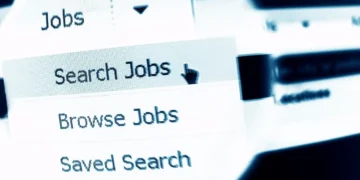- Despite a temporary dip in resignation rates, nearly 50% of workers in 2024 are considering quitting their jobs, suggesting the Great Resignation may not yet be over.
- Remote working is projected to become more prevalent by 2026, representing a significant shift away from traditional office-based work environments.
- The pervasive influence of technology, including AI and social media, along with the pressures of a shareholder-driven economy, is causing people to seek a slower, more intentional way of living, challenging conventional work structures and leading to resistance against return-to-office mandates.
In 2022, over 50 million American workers quit their jobs. In 2023, some claimed that the Great Resignation was over, and was being replaced by the Big Stay. Yet, this claim was based on the fact that monthly resignations had dipped below 4 million, down from their high of around 4.5 million per month.
Such prognostications reflect, more than anything, hope. Across the corporate landscape, entrenched stakeholders continue to look for, and hope for, some form of “return to normal” in the world of work.
Getting Real
However, as CNBC recently suggests, nearly 50% of workers in 2024 are considering leaving their current jobs. If this comes to pass, resignations for 2024 will outpace those from both 2021 and 2022. We can hope all we want, but sometimes reality suggests otherwise.
In parallel, Nick Bloom and his team at Stanford are suggesting that by early 2026 remote working (not in-office working) will pick up momentum and slowly become a much more common, even dominant, mode of working. So much for the hope for yesterday’s version of the office.
But that is really secondary here. It seems to me that the combination of the historical “time-out” of the pandemic and AI are moving us across an inflection point where the Great Domestication is turning out to be non-negotiable.
Perhaps for the first time ever (since the Industrial Revolution), workers experienced life off of the treadmill, and they like it.
We can talk endlessly about the managerial specifics — synchronous vs. asynchronous communication, hybrid work cultures, meeting frequency and protocols, team scheduling, etc. — but again, this is the minutiae of hybrid work’s future. All of this is important, indeed, but until we understand the underlying “resistance” to RTO mandates and various associated expressions of lack of trust, we are just moving things around on the deck.
Reading, Practicing, and Tending the Garden
In a recent episode of the Rick Beato show on YouTube, he addresses pushback from listeners who took offense to his previous criticisms of using AI (and other technologies) to write, edit, record, and publish music. The episode is a bit of a lament, so it is not particularly uplifting, but I think it is important.
Beato worries that the quality of music making, and listening, is deteriorating because people no longer have to work very hard to either make or listen to music. Every song ever is right at our fingertips, for a measly $10.99/month — the former cost of a single album. While this could easily be interpreted as an “old man rant,” I think he is onto something.
At the heart of Beato’s concern is a basic lack of genuine appreciation for music. To demonstrate this, he shows Google search results for music of many types (pop, classical, country, etc.) from 2004 to 2024, and they are all way down. In most cases by around 70%.
But that’s just the start.
He shows search results from the same time period for literature, art, and even video games, and lo and behold, all of those have equally fallen off the map.
What Google searches HAVE risen over that 20 year period?
Social media, of course!
This is what we are all doing. We have what new LA Lakers head coach J.J. Redick recently called “engagement farming.” Whether for personal or business “engagement,” our work lives have so consumed our personal lives (increasingly by the social media platforms whose business models depend on such engagement) that we no longer engage in many of the small, day-to-day things — like listening to a new album end to end, reading a book, turning the garden, or practicing an instrument, etc. — that used to make up daily life.
Beato follows up with anecdotal evidence — from friends of his that are music teachers — that music students today rarely pick up their instruments in between lessons. That is, no practice at home from one lesson to the next. Why? Social media engagement.
Slow Working in the Age of Shareholder Value
From Big Data to AI to endless social engagement and all the myriad applications in between, there is often little time left for us to be…human.
Prepared meals (most often sold to us by public companies whose shareholders demand ever greater scale), happily fill in for cooking. Few things are as fundamental as cooking and eating together. But between the commute, worthless meetings, and the empty rituals of office presenteeism, where to find the time?
Post-pandemic, forcing people back to the office is a violation of our recently rediscovered humanity. We can point to the new generation of pimped-out offices and AAA amenities, but none of that stuff does anything for us at a human level.
What many people want is to simply slow down and live a bit more intentionally.
The primary corporate imperatives in a shareholder economy are designed to prevent this, particularly when you stop to consider the seemingly endless menu of products and services that are sold to us and that no one actually needs.
Working remotely (and when it works for us, at the office) offers us an opportunity to slow down and build our work around our lives, and not the other way around.
Until then, every year going forward will be “the year of the Great Resignation.”

















